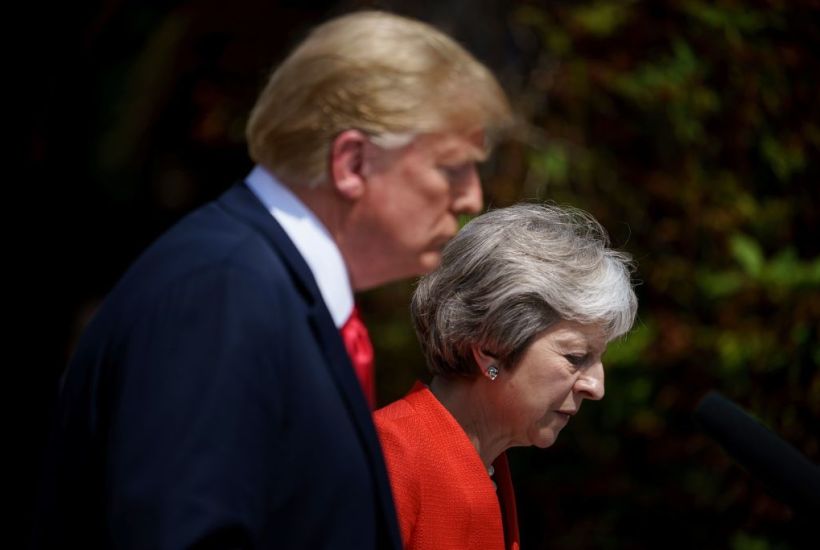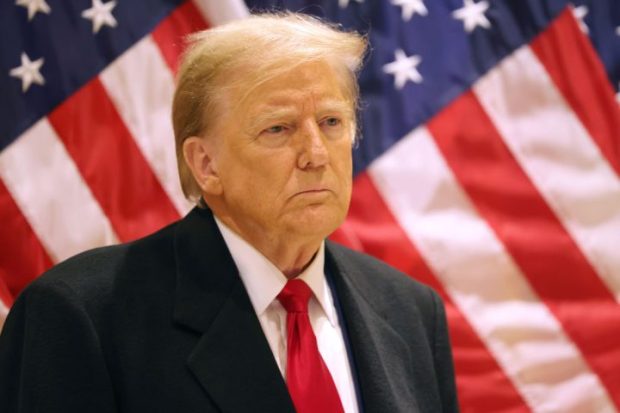Just hours after Donald Trump’s long-delayed state visit to Britain was finally confirmed, reports surfaced that Theresa May and her National Security Council have decided to let Chinese telecommunications company Huawei participate in building Britain’s 5G network. The decision is a direct slap in the face to Washington’s attempts to isolate Huawei, which itself is part of a larger campaign to aggressively counter Beijing’s pervasive and endemic cyberespionage. For a Britain weakened by the ongoing Brexit fiasco, May’s desire to allow Huawei to work on the 5G network risks not merely ruining Trump’s visit, but more importantly further straining ties with Washington.
The struggle over Huawei and the West’s 5G future goes beyond Britain. Germany, for example, appears ready to let the company build part of its proposed network, while both Australia and New Zealand have blocked it from participating. Yet given the UK’s prominence as perhaps America’s key ally, May’s decision has big implications.
The timing of the (leaked) announcement was also particularly bad, not just in relation to Trump’s planned visit, but in coming on the heels of a report that the CIA warned its “Five Eyes” intelligence partners that Huawei received funding from China’s People’s Liberation Army, one of its intelligence services, and its National Security Commission. That follows a warning from Britain’s National Cyber Security Centre about Huawei’s “shoddy” security.
May’s government will undoubtedly respond to the criticism by noting that it is not allowing Huawei to build critical core components of the network, such as data centres, but rather that the company will be limited to supporting technologies, such as antennas or base stations that connect directly to users.
Even letting Huawei build non-core components carries dangers. Opening the door to any part of the integrated 5G network introduces risks that may not be able to be mitigated once access is granted. Base stations that connect with user devices means that Huawei may have a front door directly into all of the UK’s domestic systems. As pointed out in an article on the Lawfare blog, to be sure that hardware is not compromised each individual component would have to be analysed, which is highly unlikely to happen. The ability to collect metadata, for example, can provide vital information about data traffic flows. Any information gathered, and the access provided, provide parts of a puzzle for a silent lurker.
Such concern is valid given that Chinese companies, including telecommunications firms, must cooperate with the country’s intelligence services. The 2017 National Intelligence Law mandates that companies must support Beijing’s intelligence operations when requested to do so.
The United States learned to its cost that such activities go beyond mere information gathering and surveillance and can extend to blatant theft of personal information, such as the 2015 hack of the US government’s Office of Personnel Management, through which sensitive data on millions of Americans was stolen. Such events don’t even begin to address the amount of intellectual property theft committed each year in China, which the US Trade Representative estimated costs American firms at least £38bn ($50bn) per year. And one in five North American corporations now report being hacked by Chinese sources, according to a CNBC poll.
Far from being a benign presence interacting with Western societies, China has chosen to act as an aggressor. Whether through direct government policy, corporations, or indirect actors, Chinese entities represent at a minimum bad faith actors taking advantage of the West’s openness; at a maximum, they are a serious, potentially devastating threat.
The Trump administration has decided to no longer play by China’s rules. The US traditionally looked the other way in the face of Beijing’s crimes, so as not to upset the broader relationship. But in arresting Chinese intelligence officers, in slapping £190bn ($250bn) worth of tariffs on Chinese goods so as to try and force fair trade practices on Beijing – and in blocking Huawei from US 5G systems, Washington is finally making clear that China will pay a cost for its criminal activities.
Such an approach will only be fully successful if China’s other major trade partners, and America’s key allies, are on board. Beijing prefers to deal bilaterally with nations around the world, using its size and power to intimidate potential partners. A united front is the best way to ensure that Beijing chooses to act in ways that are beneficial to both sides. Unfortunately, May seems to have chosen a different path – one that puts Britain’s homes, businesses, and government at risk.
Got something to add? Join the discussion and comment below.
Get 10 issues for just $10
Subscribe to The Spectator Australia today for the next 10 magazine issues, plus full online access, for just $10.




















Comments
Don't miss out
Join the conversation with other Spectator Australia readers. Subscribe to leave a comment.
SUBSCRIBEAlready a subscriber? Log in